Chemical pumps play a pivotal role in industrial production, facilitating the transfer of various chemical liquids. With different application requirements, there are various types of chemical pumps available. This article will introduce you to the types of chemical pumps and related knowledge.
I. Types of Chemical Pumps
1.Magnetic Pump
The magnetic pump is a new type of pump that applies the principle of magnetic coupling to centrifugal pumps. It operates in a sealed state without mechanical seals, preventing liquid leakage. It is suitable for transporting toxic, volatile, flammable, explosive, and valuable chemical liquids.
2.Turbine Pump
The turbine pump operates by rotating a turbine to transport liquids. It features high flow rates, high pressure capabilities, and is suitable for clean media. It is commonly used for large flow rate transportation in chemical production.
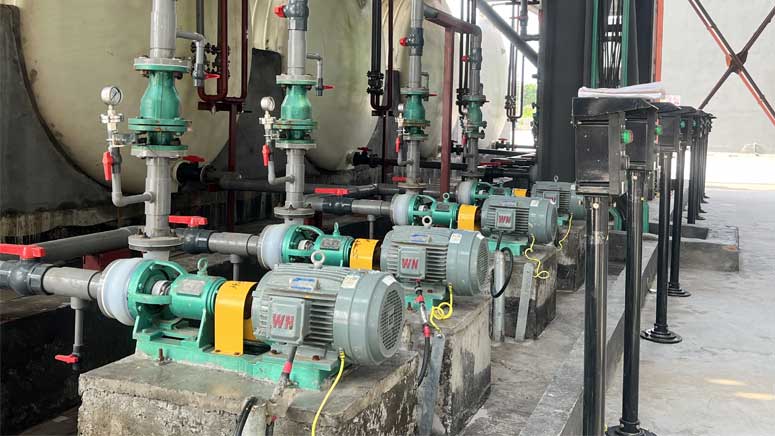
3.Vortex Pump
The vortex pump discharges liquid from the side of the pump body using centrifugal force to create a vortex, suitable for transporting media containing solid particles.
4.Centrifugal Pump
The centrifugal pump is the most common type of chemical pump, using high-speed rotating impellers to generate centrifugal force to draw liquid into the pump and transport it through pipes. It has a simple structure, stable operation, and easy maintenance, widely used in chemical, petroleum, and pharmaceutical industries.
5.Screw Pump
The screw pump transports liquids by rotating screws. It has high flow rates, stability, and is suitable for high-viscosity media, commonly used in chemical processes for transporting high-viscosity liquids and media containing solid particles.
6.Diaphragm Pump
The diaphragm pump uses diaphragms to compress air or mechanically deform, suctioning and discharging liquids. It features good self-priming, stable delivery, and is suitable for flammable and explosive media, commonly used in chemical, environmental, and pharmaceutical industries.
7.Plunger Pump
The plunger pump generates pressure pulsations by reciprocating plungers in plunger cylinders. It is characterized by high pressure and low flow rates, widely used in high-pressure cleaning, painting, and metering in chemical production.
8.Submerged Pump
The submerged pump, also known as the submersible pump, operates with all its components and rotor fully immersed in liquid. As it has no mechanical seals and transmission shafts, completely avoiding liquid leakage, it is widely used in the waste liquid recovery and treatment processes of chemical, pharmaceutical, electroplating, and petroleum industries.
II. Application and Selection Considerations for Chemical Pumps
Reasonable selection and configuration based on the characteristics of the transported medium, material configuration requirements, and installation and operating conditions. Ensure that the pump can meet process requirements, reduce energy consumption, and maintenance costs.
Choose professional and reliable chemical pump manufacturers, conduct on-site inspections and test runs to ensure that the pump's quality and performance meet production needs.
When designing and installing, consider potential issues such as vibration and noise during pump operation. Implement measures to prevent vibrations, reduce noise, and improve working environment comfort.
For pumps with special design requirements, communicate fully with the manufacturer, provide necessary data and information to ensure that the pump's performance, safety, etc., meet production requirements.
Chemical pumps must be operated and managed according to specified operation, maintenance, and repair requirements to ensure that the pump operates normally and prolong its service life, thereby reducing overall operating costs.
In summary, chemical pumps come in various types suitable for transporting different types of chemical liquids. Through correct selection, installation, operation, and maintenance, chemical pumps can provide good service and support for industrial production. Choosing the right type of chemical pump and staying informed about relevant knowledge ensures smooth production processes.





 +86 18130251359
+86 18130251359 teflowpumps@tlpumps.com
teflowpumps@tlpumps.com

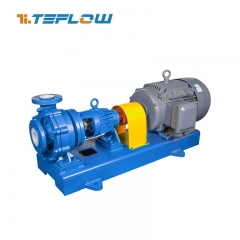
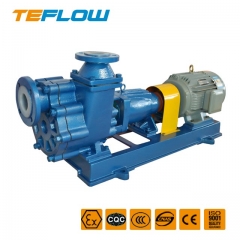
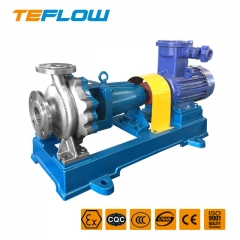
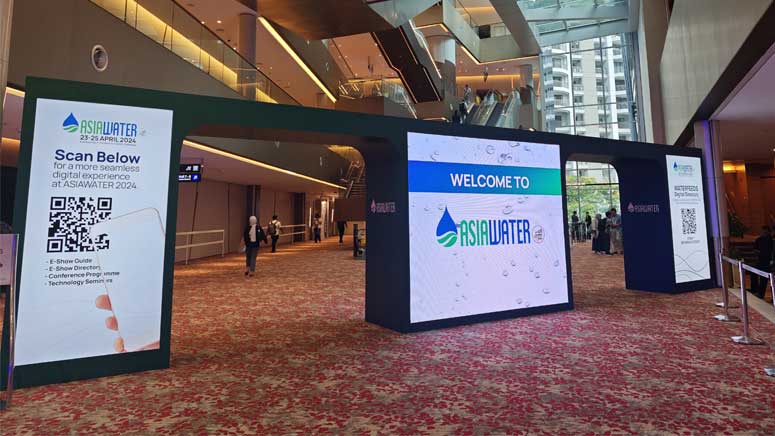







 +86+0563-5093318
+86+0563-5093318
